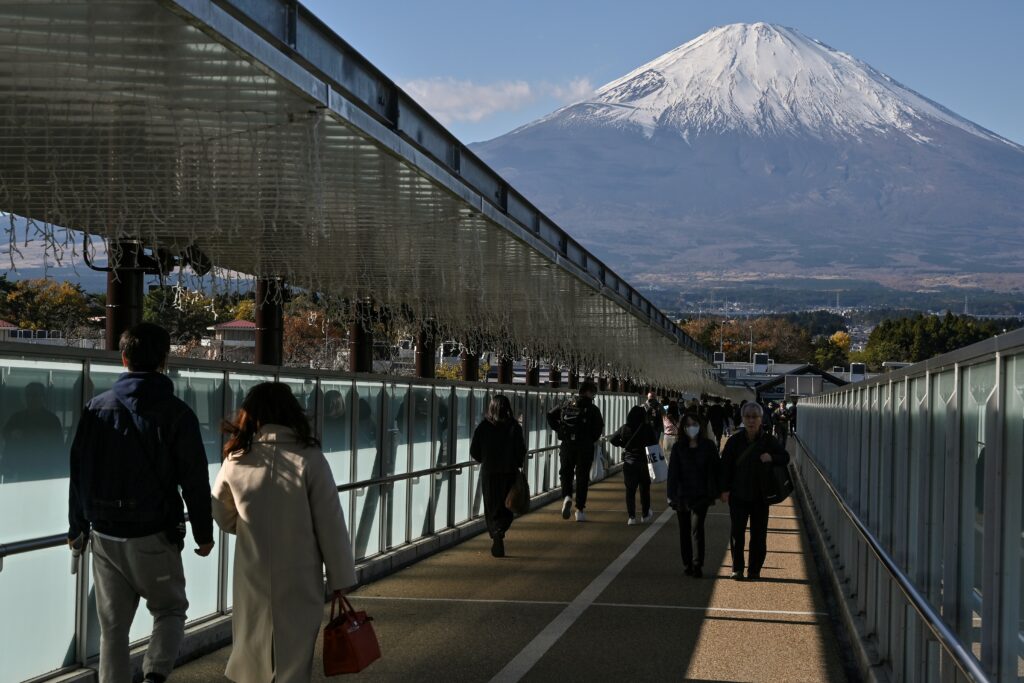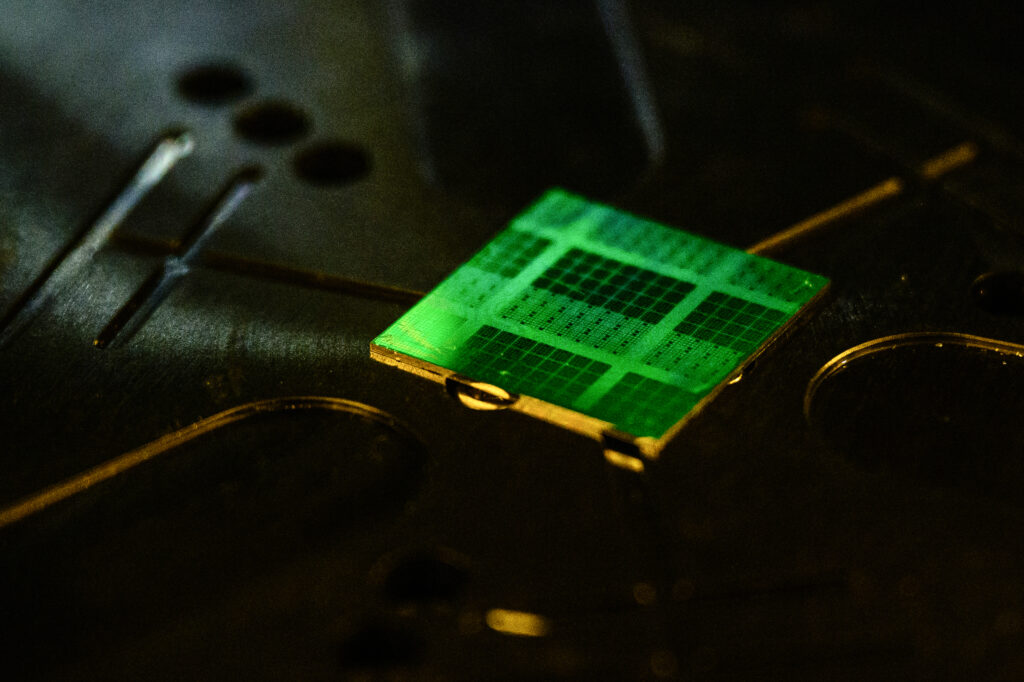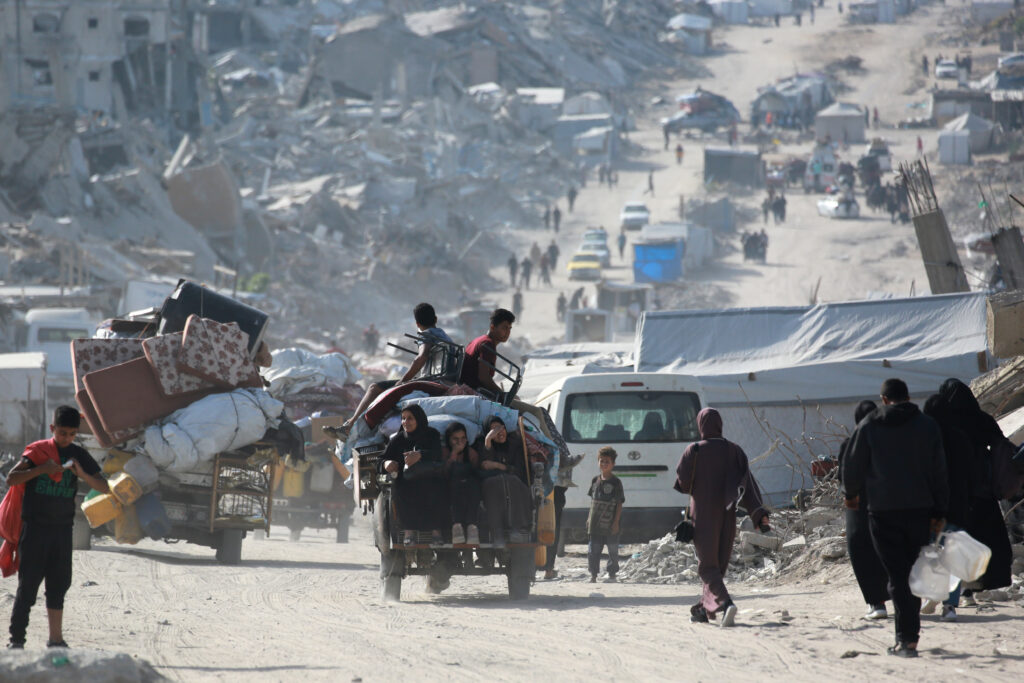European countries ramped up pressure on Israel to abandon its intensified campaign in Gaza and let more aid into the war-ravaged territory, where rescuers said Wednesday new attacks killed at least 19 people.Israel said 93 trucks had entered Gaza from Israel on Tuesday but the United Nations said the aid had been held up.The UN announced Monday that it had been cleared to send in aid for the first time since Israel imposed a total blockade on March 2, sparking severe shortages of food and medicine.The humanitarian crisis has prompted international anger, with the European Union saying it would review its trade cooperation deal with Israel over the blockade.European Union foreign affairs chief Kaja Kallas said “a strong majority” of foreign ministers from the 27 member states backed the move, adding “the countries see that the situation in Gaza is untenable… and what we want is to unblock the humanitarian aid”.Sweden said it would press the EU to level sanctions against Israeli ministers.Britain suspended free-trade negotiations with Israel, summoned the Israeli ambassador and said it was imposing sanctions on settlers in the occupied West Bank in its toughest actions so far against Israel’s conduct of the war.”Blocking aid, expanding the war, dismissing the concerns of your friends and partners. This is indefensible and it must stop,” Foreign Secretary David Lammy told parliament.Israel rejected the moves. The EU action “reflects a total misunderstanding of the complex reality Israel is facing,” Israeli foreign ministry spokesman Oren Marmorstein said.Responding to Britain, Marmorstein said “external pressure will not divert Israel from its path in defending its existence and security”.- Flour, baby food, medicine -COGAT, the Israeli defence ministry body that oversees civil affairs in the Palestinian territories, said “93 UN trucks carrying humanitarian aid, including flour for bakeries, food for babies, medical equipment, and pharmaceutical drugs were transferred” to Gaza.The spokesman for UN chief Antonio Guterres confirmed dozens of trucks were allowed in, but spoke of difficulties.”Today, one of our teams waited several hours for the Israeli green light to… collect the nutrition supplies. Unfortunately, they were not able to bring those supplies into our warehouse,” Stephane Dujarric said.UN humanitarian chief Tom Fletcher said the nine trucks cleared to enter on Monday were “a drop in the ocean of what is urgently needed”.He told the BBC Tuesday that 14,000 babies could die in the next 48 hours if aid did not reach them in time.US Secretary of State Marco Rubio told a Senate Foreign Relations Committee meeting that the supplies were “not in sufficient amounts” but added: “We anticipate that those flows will increase over the next few days and weeks. It’s important that that be achieved.”The Israeli army stepped up its offensive at the weekend, vowing to defeat Gaza’s Hamas rulers, whose October 7, 2023 attack on Israel triggered the current war.Israeli strikes overnight and early Wednesday left “19 dead, most of them children” and including a week-old baby, Gaza civil defence spokesman Mahmud Bassal told AFP.Several people were missing under the rubble while dozens of others were wounded in the attacks across the Palestinian territory, Bassal said.Israel on Wednesday announced one soldier was killed in Gaza but did not immediately comment on the latest strikes. The military said Tuesday it had hit more than “100 terror targets” in Gaza over the past day.At a bombed petrol station on Tuesday, Mahmoud al-Louh carried a cloth bag of body parts to a vehicle.”They are civilians, children who were sleeping. What was their fault?” he told AFP.- ‘Irresponsible’ -Prime Minister Benjamin Netanyahu declared Monday that Israel would “take control of all the territory of the Strip” with its new campaign.Israel resumed operations across Gaza on March 18, ending a two-month ceasefire.Negotiators from Israel and Hamas began new indirect talks in Doha at the weekend, as the intensified campaign started.Qatar, which has been involved in mediation efforts throughout the war, said Tuesday that Israel’s “irresponsible, aggressive” behaviour had undermined the chances of a ceasefire.Hours later, Netanyahu’s office accused Hamas of refusing to accept a deal, saying Israel was recalling its senior negotiators but leaving some of its team in Doha.A source close to Hamas alleged that Israel’s delegation “has not held any real negotiations” since Sunday, blaming “Netanyahu’s systematic policy of obstruction”.The Hamas attack in October 2023 resulted in the deaths of 1,218 people in Israel, mostly civilians, according to an AFP tally based on official figures.Militants also took 251 hostages, 57 of whom remain in Gaza including 34 the military says are dead.Gaza’s health ministry said Tuesday at least 3,427 people have been killed since Israel resumed strikes on March 18, taking the war’s overall toll to 53,573.




